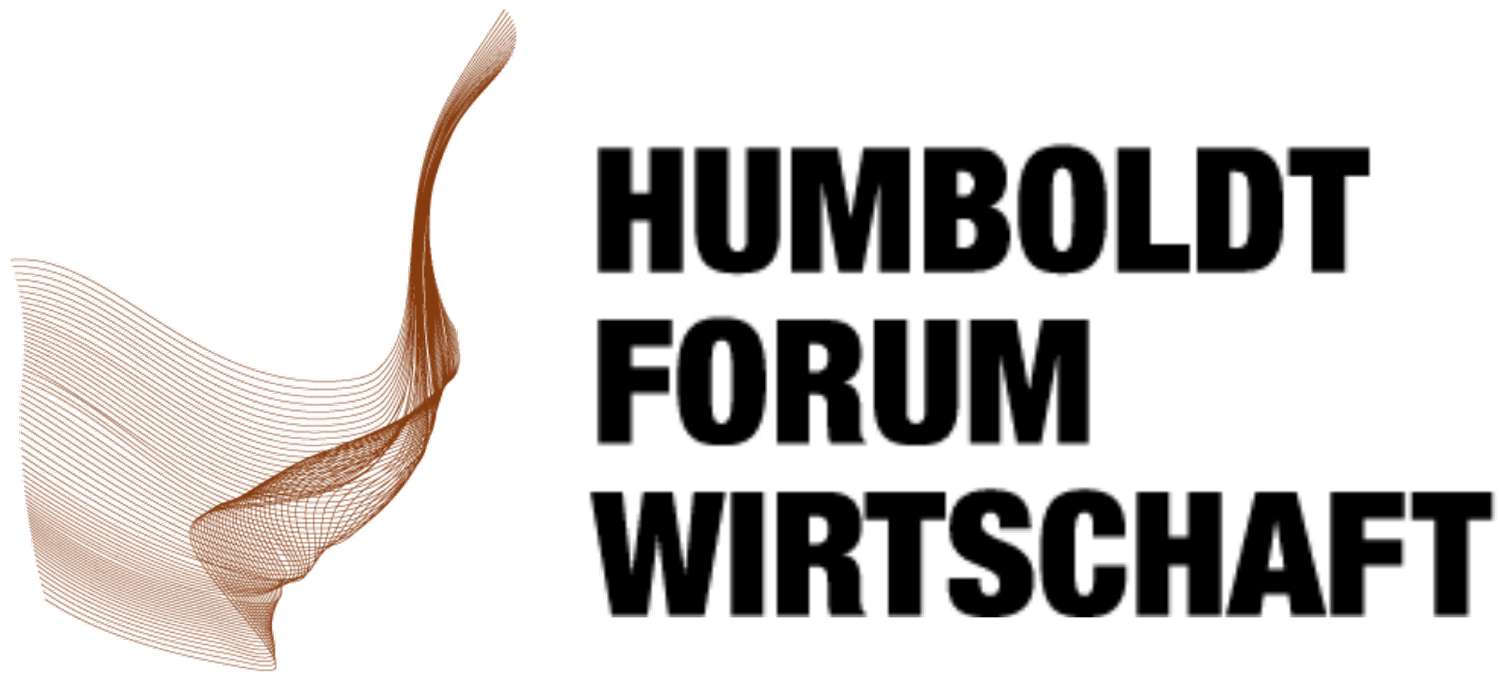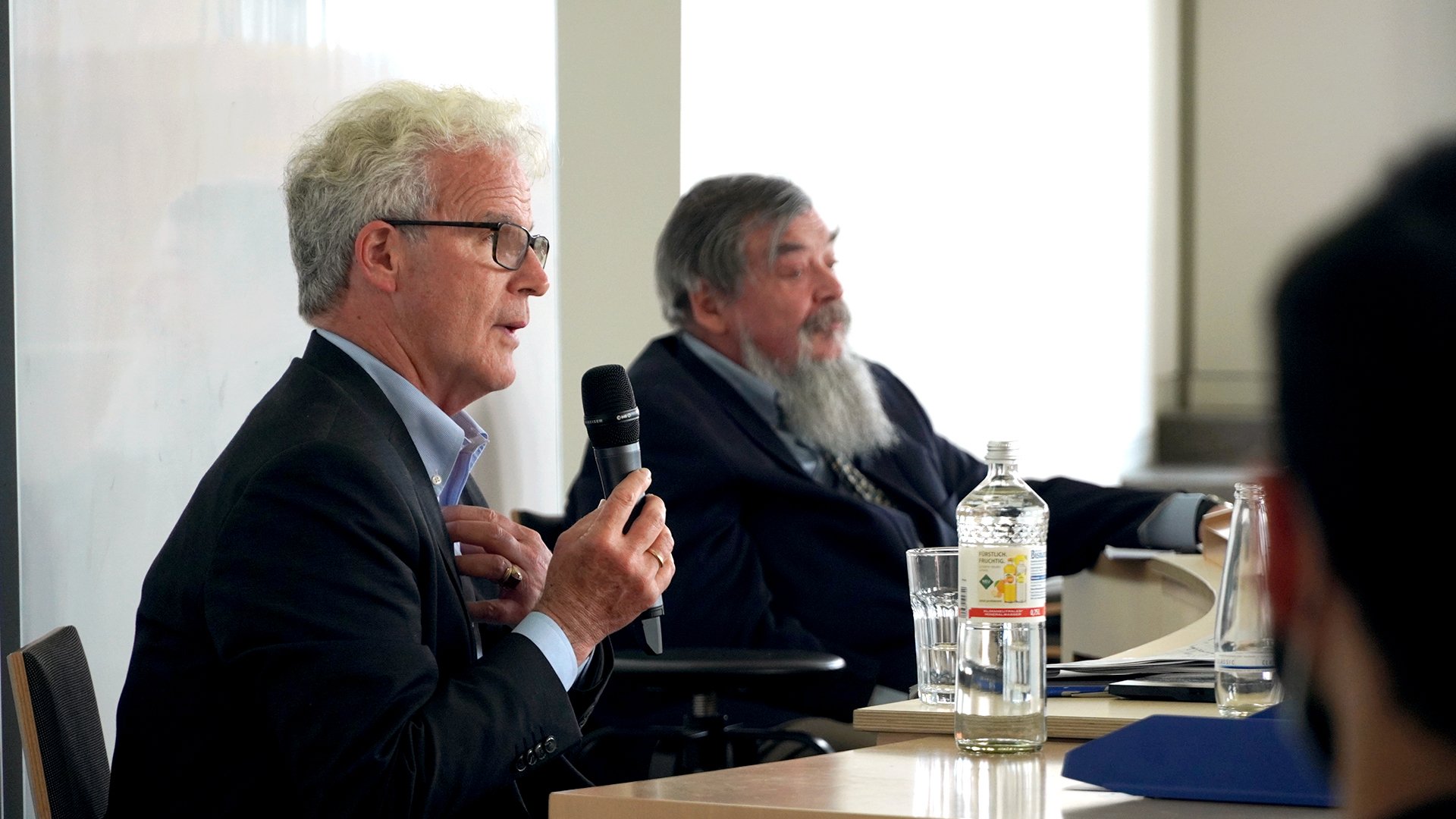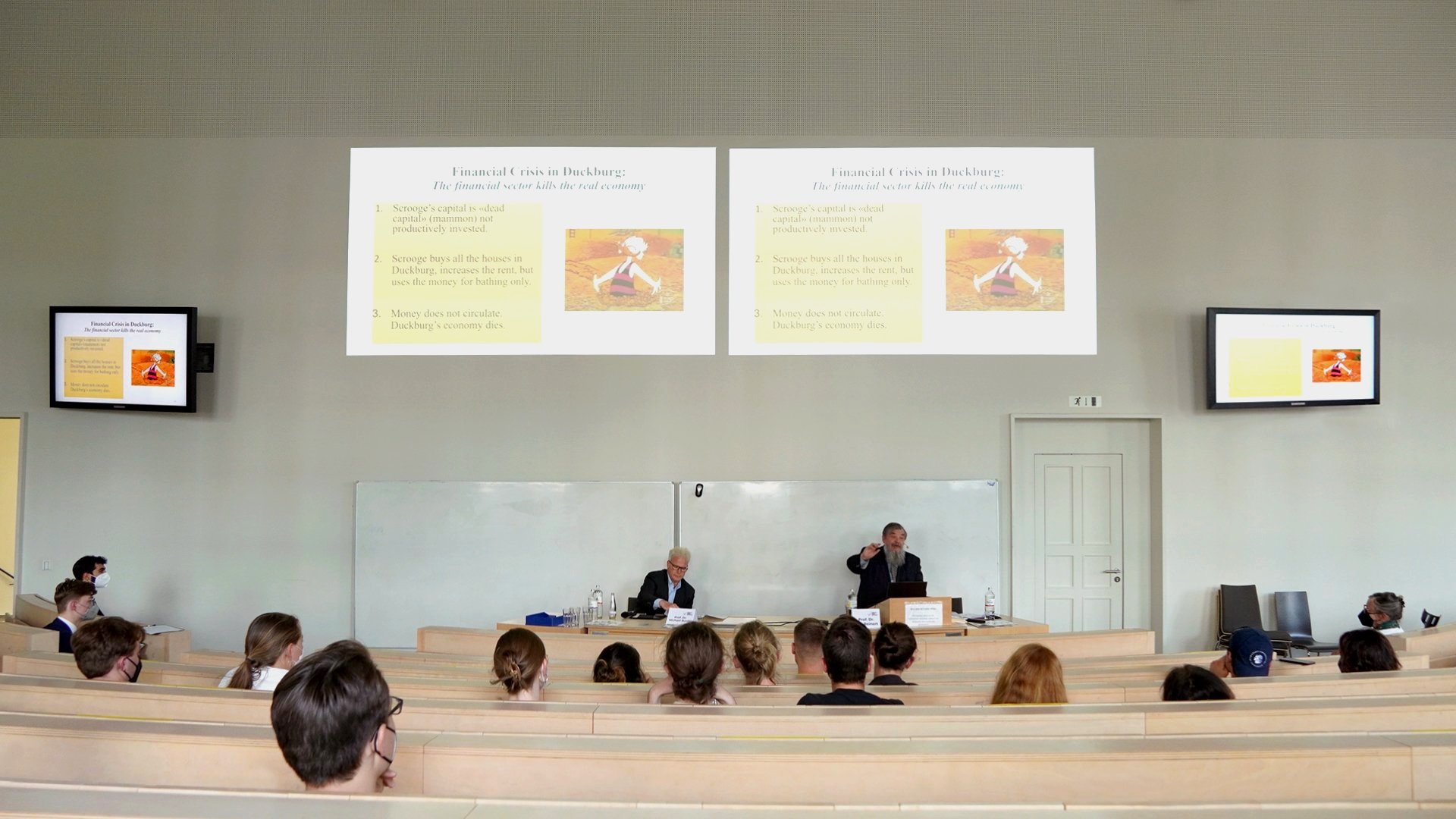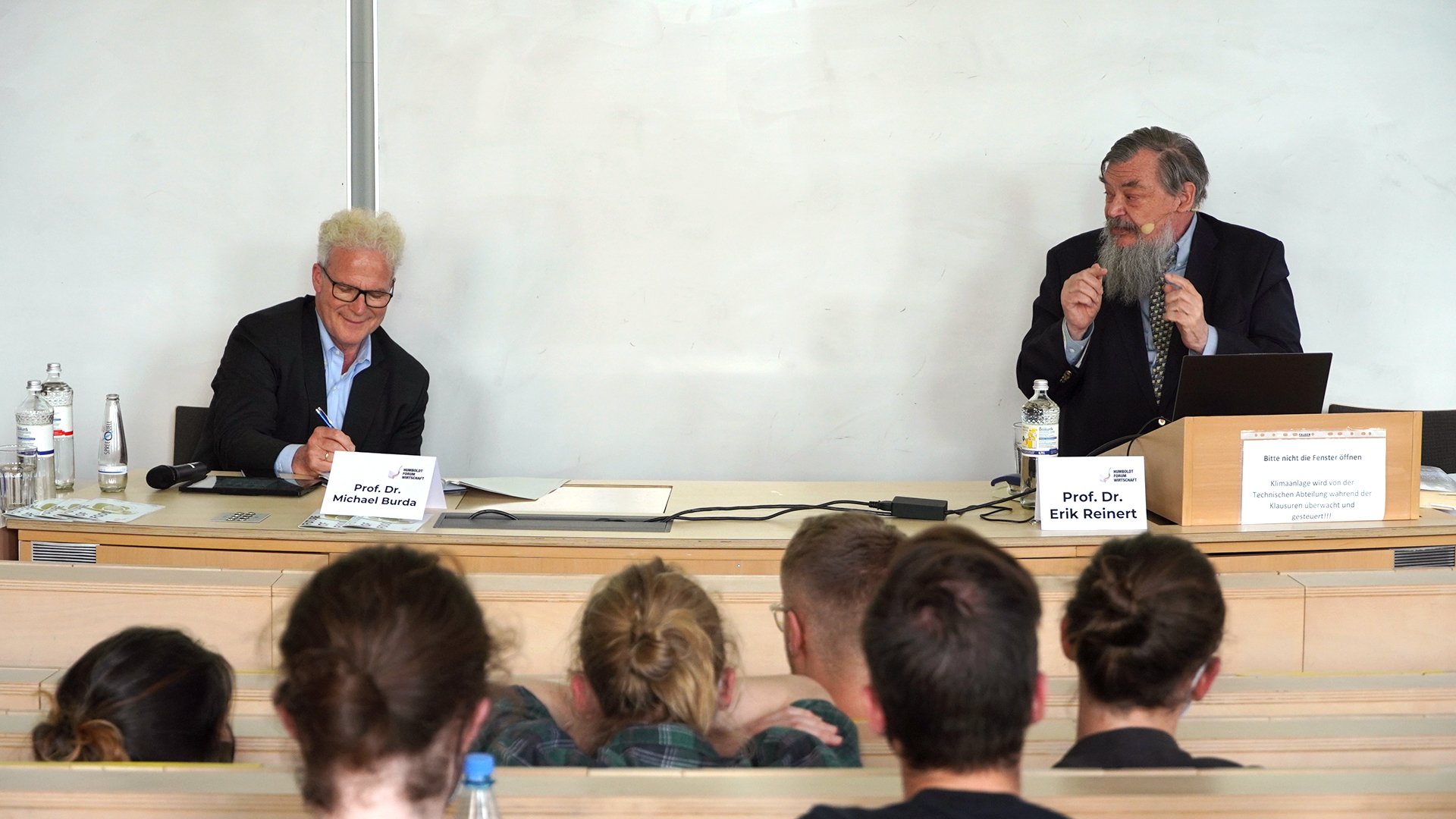Billions of Investments Yet Millions Starving - How to Solve World Hunger?
Guests: Prof. Dr. Erik S. Reinert & Prof. Dr. Michael C. Burda, Ph.D.
Prof. Dr. Erik S. Reinert
Norwegian economist and author, Professor at Tallinn University of Technology, Honorary Professor at the Institute for Innovation and Public Purpose at University College London, Guest Researcher at the Centre for the Study of the Sciences and the Humanities at the University of Bergen.
His work has focused on the theory and history of uneven economic development. His book “How Rich Countries Got Rich...and Why Poor Countries Stay Poor?”, has been translated into over 25 languages and is among the 100 most important books in economics in the 21st century.
Prof. Dr. Michael C. Burda, Ph.D.
Michael Christopher Burda is a US American economist who has been a professor of macroeconomics and labor economics and director of the Institute of Economic Theory II at the Humboldt University of Berlin since 1993. He received his A.B., A.M., and Ph.D. degrees at Harvard University in Cambridge USA. Burda also studied in Göttingen and Kiel. He has taught at INSEAD, Berkeley, and the European School of Management and Technology (ESMT) in Berlin. His research interests include macroeconomics, labor economics, and the economics of European integration. Besides that, he is the author of many publications, and the author of the textbook “Macroeconomics: A European Text”, which was first published in 1993 by Oxford University Press and the 8th edition will appear in September 2022. Since its publication, it has been translated into 12 languages.
This event started with a keynote by professor Reinert in which he talked about the principles of the German economist Friedrich List compared to principles of neoclassical theory. Afterward, Prof. Reinert introduced the idea of vicious and virtuous circles in economics. In the vicious circles, the events create negative loops that lead to worsening economic conditions, while the virtuous circles create improvements. Hence, in spite of this, one should treat hunger to solve it - “giving a fisher not only a fish but also a fishing rod”. Otherwise, Prof. Reinert terms these “palliative economics” as treating the symptoms.
He also talked about an “1848 moment” - a state in which the theories are seen as absurd and one questions how they got credibility. In this context, Prof. Reinert mentioned US President Donald Trump, who refused Milton Friedmann’s idea of free trade as a key for economic welfare and favored protectionism. This also happened to the United Kingdom before the First World War. Professor Reinert correlated hunger and poverty, to resolve poverty there should be some extent of infant industry protection and import substitution. When the Englishmen and President Trump thought about the protection of their own industries, despite the free trade, they missed the point that developing countries might be in need of the same policies and instead President Trump named them “shithole countries”.
Prof. Burda answered that through free trade the diffusion of technology took place and people were lifted out of poverty, although the gaps are immense. He insisted that hunger doesn’t necessarily depend on poverty and argued that in developing countries one should not forget about corruption, inequality, lack of the rule of law, democracy, strong institutions, and also military conflicts which lead to both poverty and hunger. According to Prof. Burda, one also shouldn't underestimate who has the power in a country, which interests this person has, and how they influence the economy. Moreover, he pointed out that in developing countries people also depend a lot on logistics which could lead to inequality of access to food.
In the final part of the event, the speakers took questions from the audience. In this part, they addressed the role of China in the world economy, its influence on the developing countries in Africa, as well as the Russian war against Ukraine.
By Pylyp Udovenko




